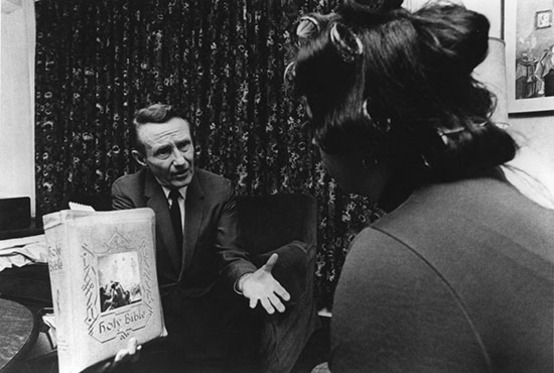Salespeople are often prone to the changes a society experiences. In the Maysles brothers’ 1968 documentary, Salesman, Paul “The Badger” and Brennan and his brethren bull their way through a day-to-day existence as door-to-door peddlers of bibles in a time when itinerant selling had reached obsolescence and religion and traditional values were losing their grip on the collective will. They were beaten down as the traveled a well-beaten path that had become a road to nowhere.
There’s a different dynamic today poised to cut deeper into the sales department, one that won’t just require people to travel across new horizons and new media but will make the human element altogether optional. The Australian company Atlassian, valued at $5 billion, sold $320 million worth of business software last year sans sales staff. That doesn’t mean every other company will instantly let the entire team go, but it threatens to thin the ranks significantly, to remove the commission from the mission.
From Dina Bass at Bloomberg:
Brandon Cipes, vice president for information systems at OceanX, has spent enough time in senior IT positions to hate sales calls. “It’s like buying a car—a process that seemingly should be so simple, but every time I have to, it’s like a five- to six-hour ordeal,” he says. “Most of our effort is trying to get the salespeople to leave us alone.” Cipes didn’t always feel that way, though. Back in 2013, he was used to the routine. His conversion began when he e-mailed business-software maker Atlassian, asking the company to send him a sales rep, and it said no.
Atlassian, which makes popular project-management and chat apps such as Jira and HipChat, doesn’t run on sales quotas and end-of-quarter discounts. In fact, its sales team doesn’t pitch products to anyone, because Atlassian doesn’t have a sales team. Initially an anomaly in the world of business software, the Australian company has become a beacon for other businesses counting on word of mouth to build market share. “Customers don’t want to call a salesperson if they don’t have to,” says Scott Farquhar, Atlassian’s co-chief executive officer. “They’d much rather be able to find the answers on the website.”
The way technology companies sell software has changed dramatically in the past decade. The availability of open source alternatives has pushed traditional brands and rising challengers to offer more free trials, free basic versions of their software with paid upgrades, and online promotions.
Incumbents such as IBM, Oracle, and Hewlett Packard Enterprise, which employ thousands of commissioned salespeople, are acquiring open source or cloud companies that sell differently, says Laurie Wurster, an analyst at researcher Gartner. Slack, Dropbox, and GitHub are among the companies trying to attract corporate clients with small-bore efforts that rely largely on good reviews. The idea is to distribute products to individuals or small groups at potential customers big and small and hope interest spreads upstairs.•
Tags: Brandon Cipes, Dina Bass, Scott Farquhar

